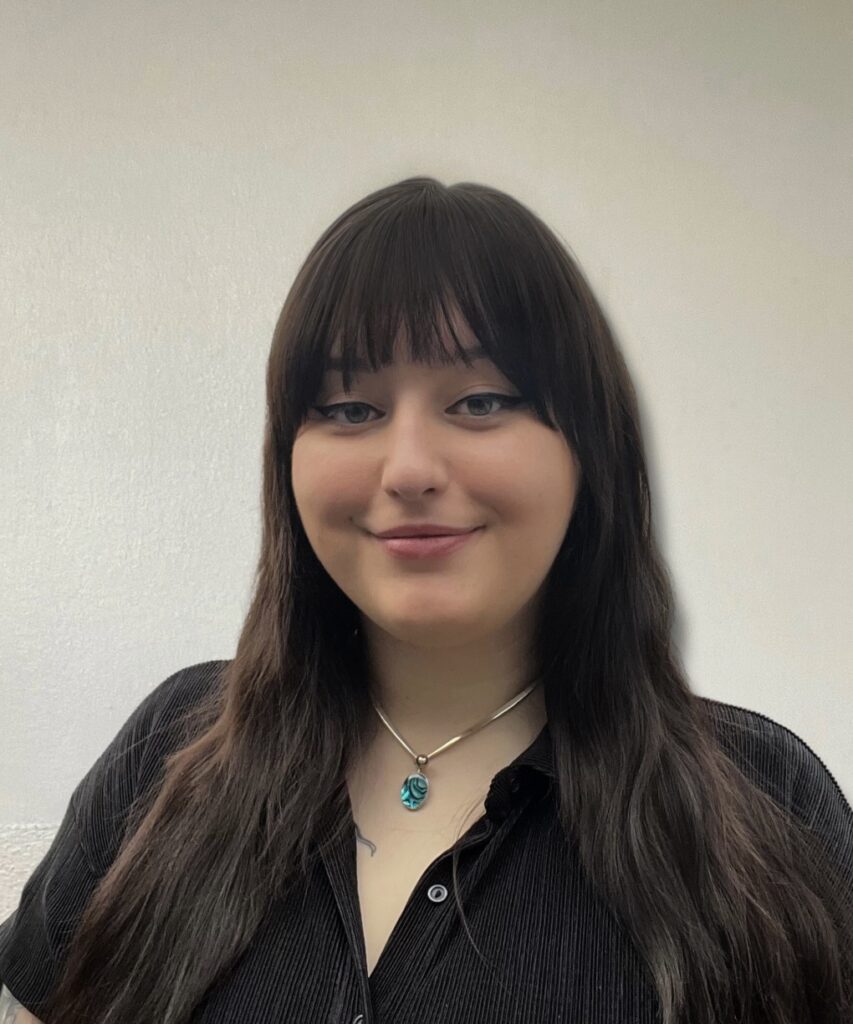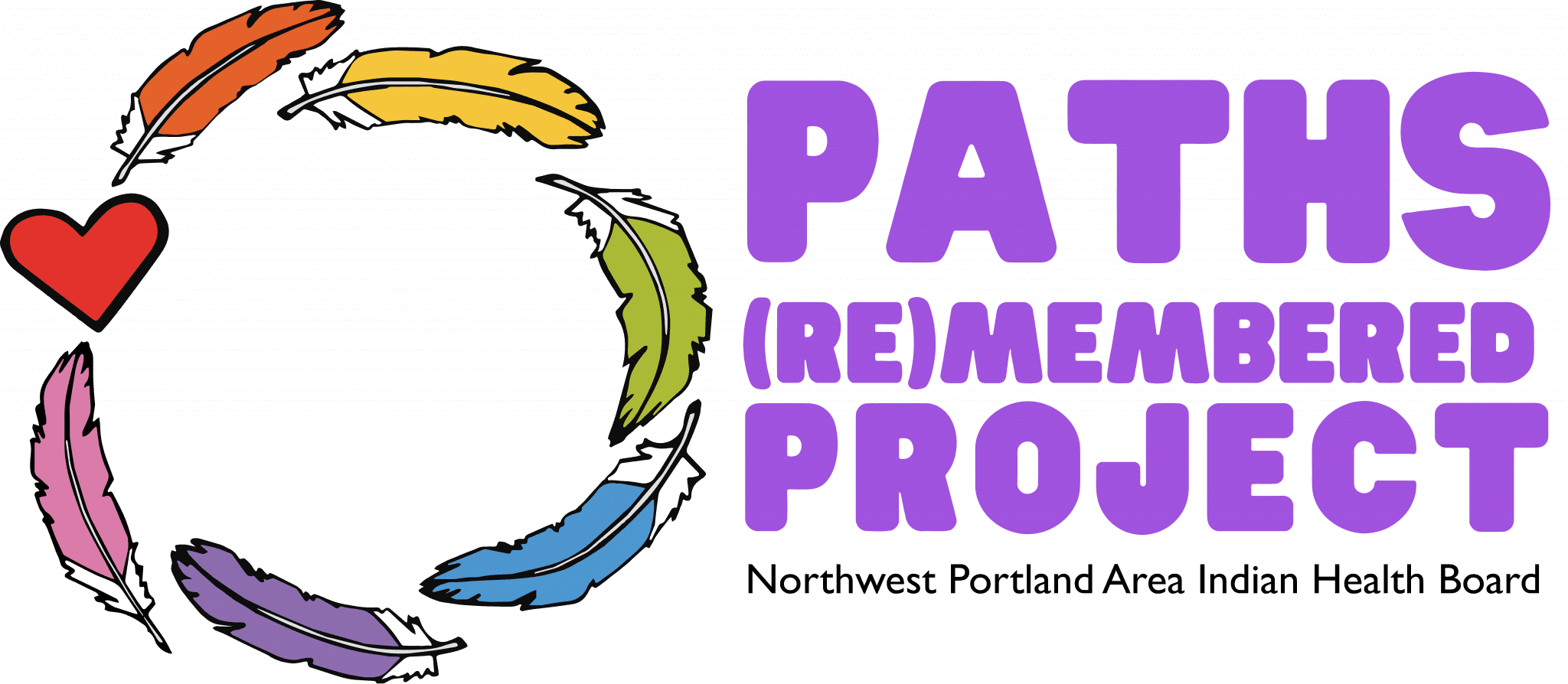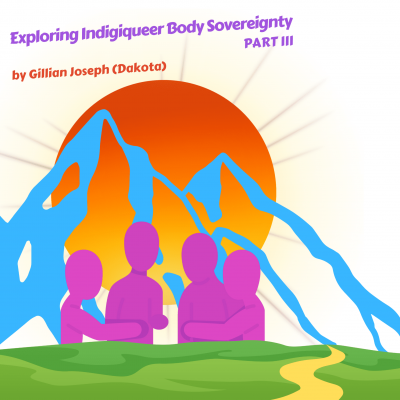Finding Solidarity & Resistance in Body Sovereignty
Continuing Our Journey with Body Sovereignty
In the first two parts of this series, we established body sovereignty as an inherent right everyone has to full autonomy over their body. We discussed some of the ways that we might choose to reclaim our body sovereignty in the face of colonial binaries and marginalization. We recognized that our bodies, like the land, are sites of extraction, violence, and legislation in settler society. And also – our bodies, like the land, are sites of liberation, joy, resistance, and solidarity.
I realize that it can feel impossible to connect with this conceptualization of body and land, especially as we bear witness to the ongoing genocide of our Palestinian kin. The atrocities committed against Palestinians and their homelands are deeply intertwined with the atrocities that many of our communities and homelands have undergone. Indigenous people are often connected by our shared histories and present realities of colonial violence and trauma. It’s important to acknowledge that we are also connected by our shared struggles for liberation, our resistance against colonialism, and our commitment to being in solidarity with each other. I want to hold space in this article for reflecting on and strengthening these relationships through body sovereignty.
Rediscovering and Reconnecting to Ancestral Knowledge
Sovereignty will always exist, and always has. When we feel unsure of that, we can look to our relatives, ancestors, and histories, and let them inspire and guide us in (re)membering our paths to sovereignty. We exert our sovereignty every day, even when we aren’t actively aware of it. For example, eating a food that’s a part of your traditional food system, saying a word in your ancestral language, or engaging in a cultural practice that was passed down to you are sovereign acts because they are the cumulation of generations of resistance that kept those foods, words, and practices alive.
There are many Indigenous folks who have written and spoken about the power of reconnecting with the knowledge that we carry within us. This knowledge has been built over lifetimes and influences how we nourish ourselves, interact with others, and view the world. What starts as a seemingly small act of reconnecting with our ancestral knowledge, like learning and using the original name of a geographical place, can turn into something that will positively affect people for decades to come. For example, returning a river’s original name reconnects us with ancestors who also knew the river by that name. This shifts our understanding of the river away from a colonial history, honors the sovereignty of the river’s stewards, and makes a political statement that the river existed before the english language was thrust upon its shores.
The Importance of Story
Thinking about our intrinsic knowledge as intergenerational helps us better understand how body sovereignty connects us to resistance and liberation. Ancestral knowledge and body sovereignty both ask us to dig deeper into ourselves and ask complex questions, such as how do I move through the world? When I think about this question, I often find myself circling back to the revelation that I don’t move through the world as a singular person, but as the fusion of all my ancestors.
This is especially clear to me when I listen to stories about my family; once I’ve heard the story, it becomes a part of me and I become a part of it. The story becomes a part of my memory, which stretches out far before I was born. And simultaneously, my memory paints its own rendition of the story. The story becomes a sovereign space – which we previously defined as a space controlled by and centering Indigenous people – where we don’t have to abide by colonial ideas of time. Instead of past, present, and future, there is a collective memory that goes on forever. The power of storytelling is its ability to move through time and space without restrictions, to meet us wherever and whenever we are. I believe that this is why storytelling is crucial to struggles for liberation: it provides us with a sovereign space where we can learn, teach, unite, and imagine.
Embodying Story, Embodying Sovereignty
While storytelling can bring us into a sovereign space, it is up to us to carry and embody the knowledge imparted by the story. By embody, I mean incorporating the story into our lives and acting upon it. We can embody story and sovereignty through all kinds of practices. Here, I look to Mushkegowuk professor Michelle Daigle’s description of the embodiment of self-determination as renewing and rehonoring responsibilities and a decolonial love for land. Michelle gives us an example of what this means in the context of Anishinaabe deer hunting. By hunting deer, Anishinaabe people are contributing to the resurgence of their traditional food systems and resisting colonialism by asserting their rights as stewards of the land (a reciprocal relationship with that land). This resurgence and resistance are the embodiment of sovereignty and form the building blocks of organized movements for liberation.
Figuring out how we can renew and rehonor our responsibilities to land, community, and self is a powerful way to exert our body sovereignty and build solidarity globally. There’s no one set way to engage in this work, though, because we all have different knowledge, abilities, and experiences to contribute. When feeling lost or unsure, we can look to elders, friends, archives, and art for an approach that resonates with us. As 2SLGBTQ+ Indigenous people, we also have rich histories, unique insight, and sometimes, specific roles to direct us on our journey to embodying sovereignty. I hope that when we are feeling lost or helpless, we can find momentum in the knowledge that resistance and resurgence are constantly occurring, building, and shaping our worlds.
As we continue deepening understandings of our selves, bodies, and sovereignty, I want to leave a question to explore: What is the original word your body might go by? Can you return yourself to the sovereign space connected to that story/memory?
Gillian Joseph (they/them) is a queer 2-Spirit Ihaŋktoŋwaŋ and Mdewakaŋtoŋ Dakota storyteller who grew up as a guest on Waxhaw and Catawba lands. Alongside writing, they work in the mental health field with a focus on Indigenous sovereignty.



